第43章
And so young! A much younger woman than I expected.A widow before most women are wives.So young, surely she cannot be such a fiend as they described her to be!' A few nights afterwards Lord Colambre was with some of his acquaintance at the theatre, when Lady Isabel and her mother came into the box, where seats had been reserved for them, and where their appearance instantly made that sensation which is usually created by the entrance of persons of the first notoriety in the fashionable world.Lord Colambre was not a man to be dazzled by fashion, or to mistake notoriety for deference paid to merit, and for the admiration commanded by beauty or talents.Lady Dashfort's coarse person, loud voice, daring manners, and indelicate wit, disgusted him almost past endurance, He saw Sir James Brooke in the box opposite to him; and twice determined to go round to him.His lordship had crossed the benches, and once his hand was upon the lock of the door; but attracted as much by the daughter as repelled by the mother, he could move no farther.The mother's masculine boldness heightened, by contrast, the charms of the daughter's soft sentimentality.The Lady Isabel seemed to shrink from the indelicacy of her mother's manners, and seemed peculiarly distressed by the strange efforts Lady Dashfort made, from time to time, to drag her forward, and to fix upon her the attention of gentlemen.Colonel Heathcock, who, as Mrs.Petito had informed Lord Colambre, had come over with his regiment to Ireland, was beckoned into their box by Lady Dashfort, by her squeezed into a seat next to Lady Isabel; but Lady Isabel seemed to feel sovereign contempt, properly repressed by politeness, for what, in a low whisper to a female friend on the other side of her, she called, 'the self-sufficient inanity of this sad coxcomb.' Other coxcombs, of a more vivacious style, who stationed themselves round her mother, or to whom her mother stretched from box to box to talk, seemed to engage no more of Lady Isabel's attention than just what she was compelled to give by Lady Dashfort's repeated calls of--'Isabel! Isabel! Colonel G-- Isabel! Lord D-- bowing to you, Belie! Belie! Sir Harry B-- Isabel, child, with your eyes on the stage? Did you never see a play before? Novice! Major P--waiting to catch your eye this quarter of an hour; and now her eyes gone down to her play-bill! Sir Harry, do take it from her.
'Were eyes so radiant only made to read?'
Lady Isabel appeared to suffer so exquisitely and so naturally from this persecution, that Lord Colambre said to himself--'If this be acting, it is the best acting I ever saw.If this be art, it deserves to be nature.'
And with this sentiment he did himself the honour of handing Lady Isabel to her carriage this night, and with this sentiment he awoke next morning; and by the time he had dressed and breakfasted he determined that it was impossible all that he had seen could be acting.'No woman, no young woman, could have such art.Sir James Brooke had been unwarrantably severe; he would go and tell him so.'
But Sir James Brooke this day received orders for his regiment to march to quarters in a distant part of Ireland.His head was full of arms, and ammunition, and knapsacks, and billets, and routes; and there was no possibility, even in the present chivalrous disposition of our hero, to enter upon the defence of the Lady Isabel.Indeed, in the regret he felt for the approaching and unexpected departure of his friend, Lord Colambre forgot the fair lady.But just when Sir James had his foot in the stirrup, he stopped.
'By the bye, my dear lord, I saw you at the play last night.You seemed to be much interested.Don't think me impertinent, if Iremind you of our conversation when we were riding home from Tusculum; and if I warn you,' said he, mounting his horse, 'to beware of counterfeits--for such are abroad.' Reining in his impatient steed, Sir James turned again and added, 'DEEDS NOTWORDS, is my motto.Remember, we can judge better by the conduct of people towards others than by their manner towards ourselves.'